1. The Simpsons – “Lisa’s Wedding” (1995)
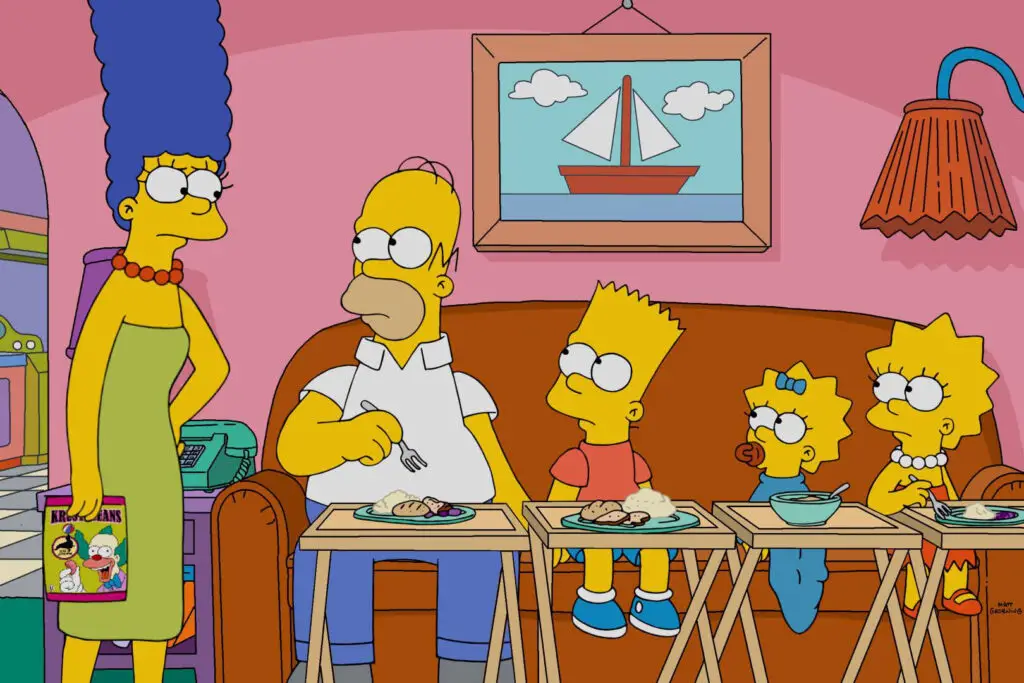
In this classic episode, Lisa travels to the future and learns she’ll marry a British man. While that’s funny enough, the real jaw-dropper came from its background details. Fans later noticed that the episode predicted smartwatches, video calls, and even Disney’s acquisition of 20th Century Fox. At the time, those things seemed like pure science fiction, but today they’re completely normal parts of life.
The Simpsons has become famous for its eerie foresight, but “Lisa’s Wedding” was one of the earliest examples. It captured how technology would quietly weave into everyday routines long before most people owned a cell phone. Even the quick visual jokes, like characters scrolling through virtual libraries, now look like early visions of tablets. It’s the kind of episode that makes you wonder if the writers had a time machine in the break room.
2. Family Guy – “Fat Guy Strangler” (2005)
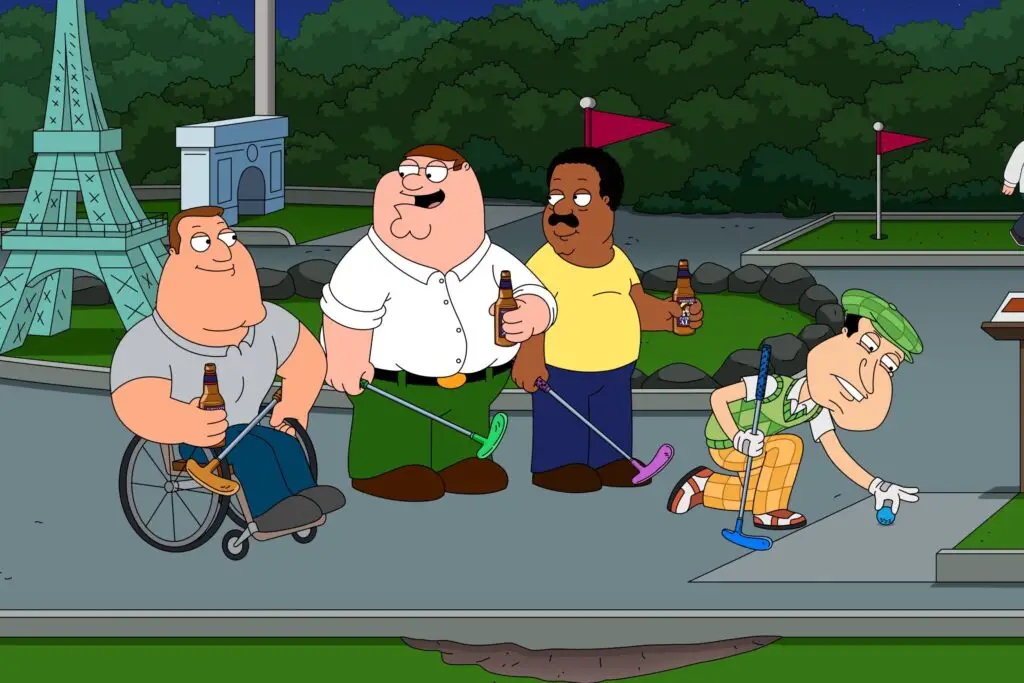
In this wild Family Guy outing, Brian jokes about Bruce Jenner still being a man, years before Caitlyn Jenner came out as transgender. It was played for laughs in typical Family Guy fashion, but it became one of those unsettlingly specific coincidences. The writers weren’t trying to make a prediction, yet it’s one that fans still bring up when talking about how strange TV coincidences can be.
At the time, Family Guy was known for its edgy humor and absurd pop culture references, so no one thought much of it. But after Jenner’s public transition in 2015, the episode was viewed in a totally different light. It showed how comedy can unintentionally brush up against the future, even when it’s just tossing out quick one-liners. Sometimes, the punchlines age in unexpected ways.
3. Parks and Recreation – “Two Funerals” (2015)
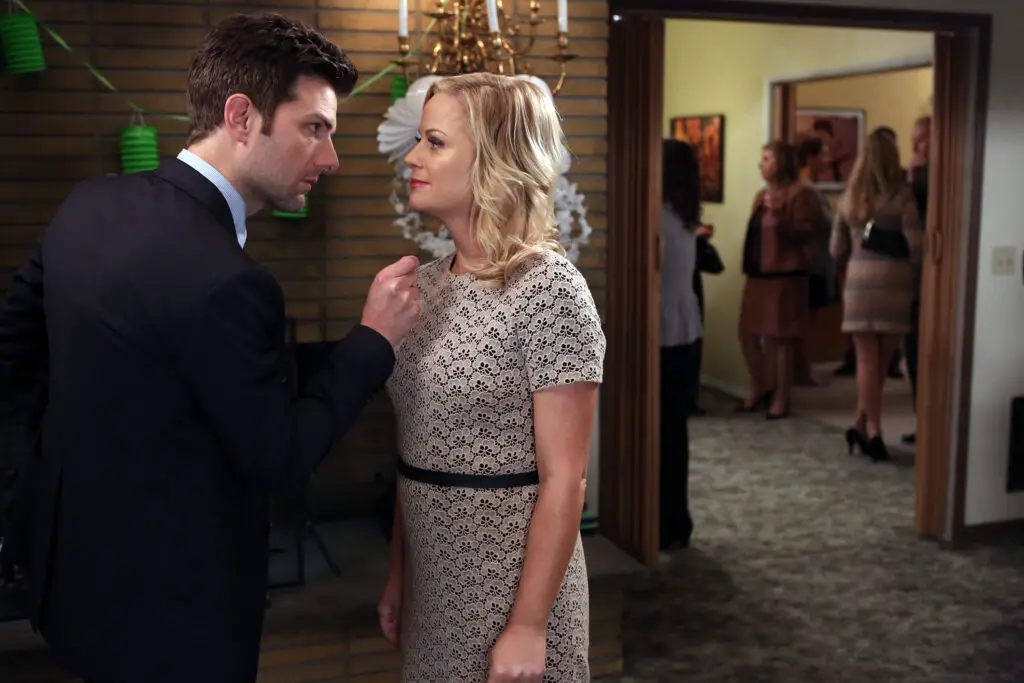
When Parks and Recreation jumped ahead to the year 2017, it introduced viewers to a world filled with smartwatches, drone deliveries, and futuristic tech. The predictions were treated as part of the show’s silly optimism, but they ended up being surprisingly accurate. Just a few years later, Amazon’s drone delivery projects and the popularity of wearable fitness trackers made the show look oddly prophetic.
Even the way characters casually used touchscreen technology mirrored how normal it’s become today. Parks and Rec was always a feel-good show, so it’s fitting that its vision of the future wasn’t dystopian—it was hopeful and practical. Leslie Knope would probably be thrilled to know how many of her show’s guesses came true. It’s one of the few sitcoms that made the future feel fun rather than frightening.
4. Seinfeld – “The Millennium” (1997)
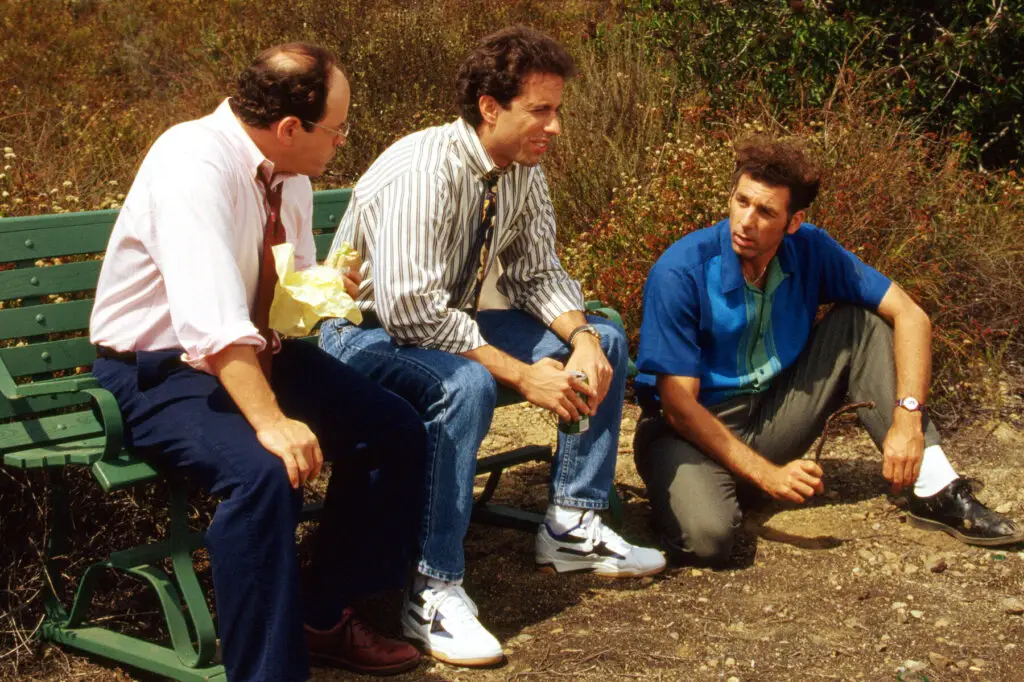
In “The Millennium,” George obsesses over preparing for the year 2000, while Kramer starts planning an apocalyptic bunker party. It seemed absurd in the late ’90s, but only a couple of years later, the Y2K scare had people stockpiling supplies just like Kramer. The writers couldn’t have predicted that computer glitches would have people panicking about global collapse, but they nailed the hysteria.
Seinfeld always exaggerated everyday anxieties, and in this case, it foreshadowed a real one. The Y2K panic became one of the strangest moments in modern tech history, where everyone feared their microwaves might stop working at midnight. Looking back, it’s easy to laugh, but “The Millennium” almost feels like a comedic warm-up for the real chaos of 1999. As usual, George and Kramer were just ahead of their time.
5. The Office – “Work Bus” (2012)

In “Work Bus,” Jim tricks Dwight into believing their office building is unsafe, forcing everyone to work remotely in a mobile office. It was meant to be a funny episode about tight spaces and tempers, but fans couldn’t help noticing its eerie relevance years later. By 2020, millions of people were suddenly working from home due to the pandemic.
The Office crew crammed into a bus because they couldn’t use their office safely, echoing the same isolation and odd work setups people later faced. Of course, The Office used it for laughs, but its accidental commentary on flexible work and “remote culture” feels surprisingly modern. It was another reminder that sitcoms often capture changing work habits without even trying. In this case, they predicted a global shift in how we work.
6. 30 Rock – “Governor Dunston” (2012)

When 30 Rock introduced a clueless political candidate named Dunston who looked and acted suspiciously like Donald Trump, it was all in good fun. But only a few years later, Trump’s presidential campaign began, and the similarities became impossible to ignore. The episode was written as sharp satire, but it ended up being a weirdly accurate preview of real-world politics.
Tina Fey’s writing often blurred the line between absurdity and truth, and “Governor Dunston” did exactly that. It predicted how reality television personalities could dominate politics and media narratives. Watching it now feels like seeing the future play out in real time. What started as a parody became one of 30 Rock’s most uncanny coincidences.
7. The Fresh Prince of Bel-Air – “I, Done” (1996)
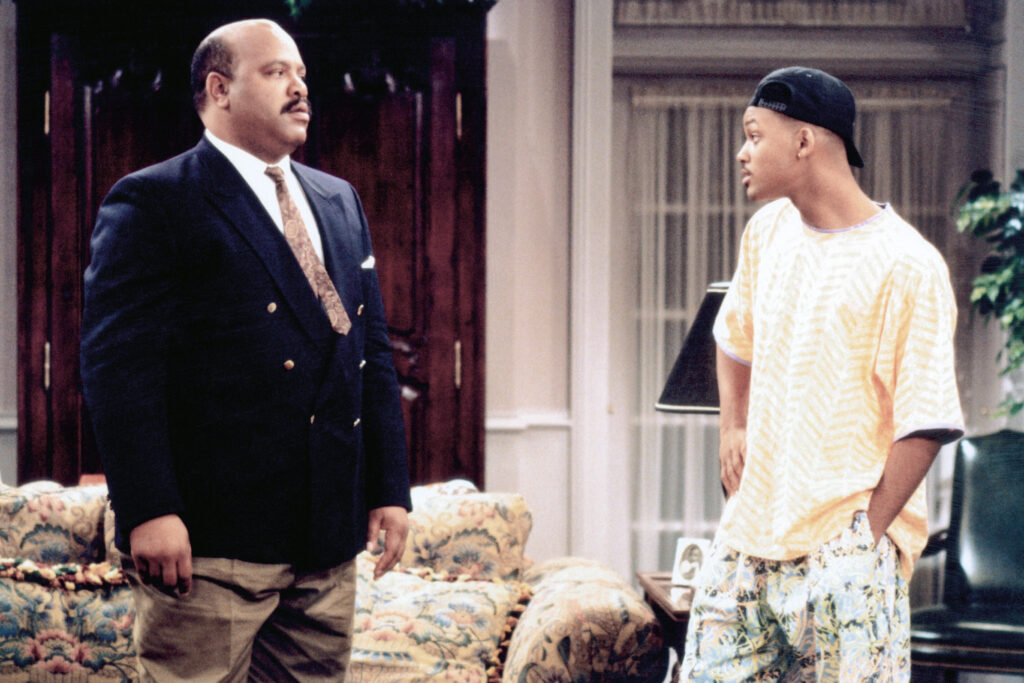
In the Fresh Prince series finale, Uncle Phil tells Will he can always crash with him in California if things get rough. Years later, actor Will Smith would become one of the biggest stars in Hollywood—based in California, no less. It’s a sweet and subtle full-circle moment that feels oddly predictive.
The finale was meant to be emotional, not prophetic, but it reflected Smith’s real-life ambitions. He had already begun transitioning into movies, and within a year, Men in Black made him a box office powerhouse. That final exchange between Will and Uncle Phil almost feels like a blessing for the success that followed. It’s one of those coincidences that makes fiction and reality blur together.
8. That ’70s Show – “Eric’s Buddy” (1998)
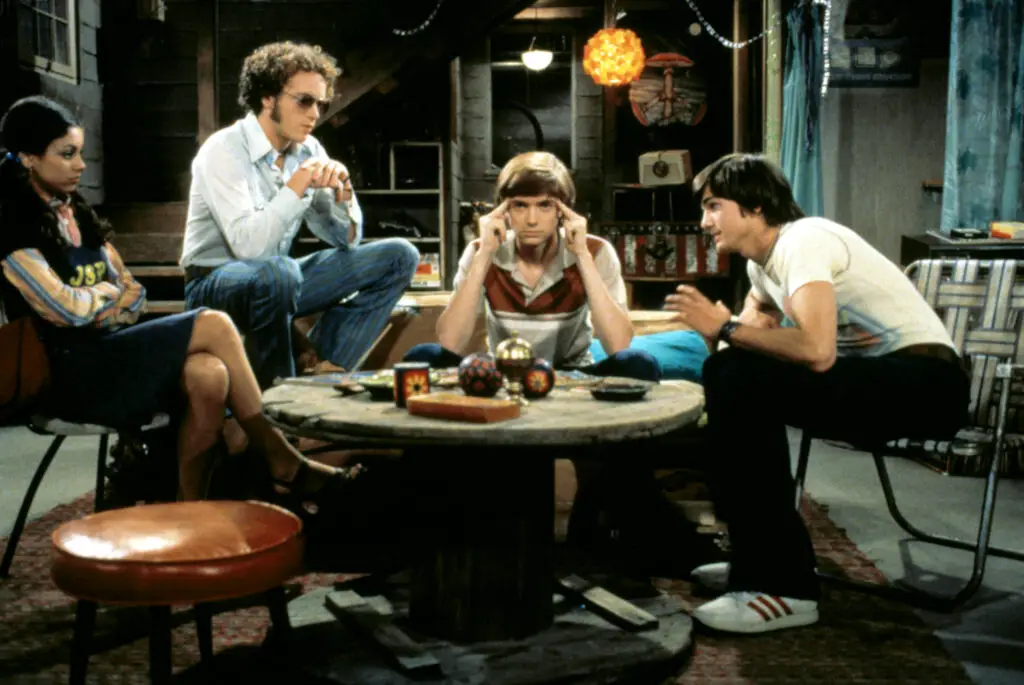
In this early episode, a character mentions that someday everyone will have computers small enough to carry around, connecting to the world. It sounded far-fetched in a basement full of lava lamps, but it perfectly described smartphones years before they existed. For a show set in the ’70s, it ended up predicting the 21st century better than most sci-fi series.
That ’70s Show was filled with jokes about outdated technology, so this one slipped under the radar at the time. But fans later realized how spot-on it was about portable tech and constant connectivity. The idea that everyone would be glued to screens seemed funny then, but it’s practically daily life now. Eric Foreman would’ve been amazed by how right his friend turned out to be.
9. Frasier – “A Tsar is Born” (1999)
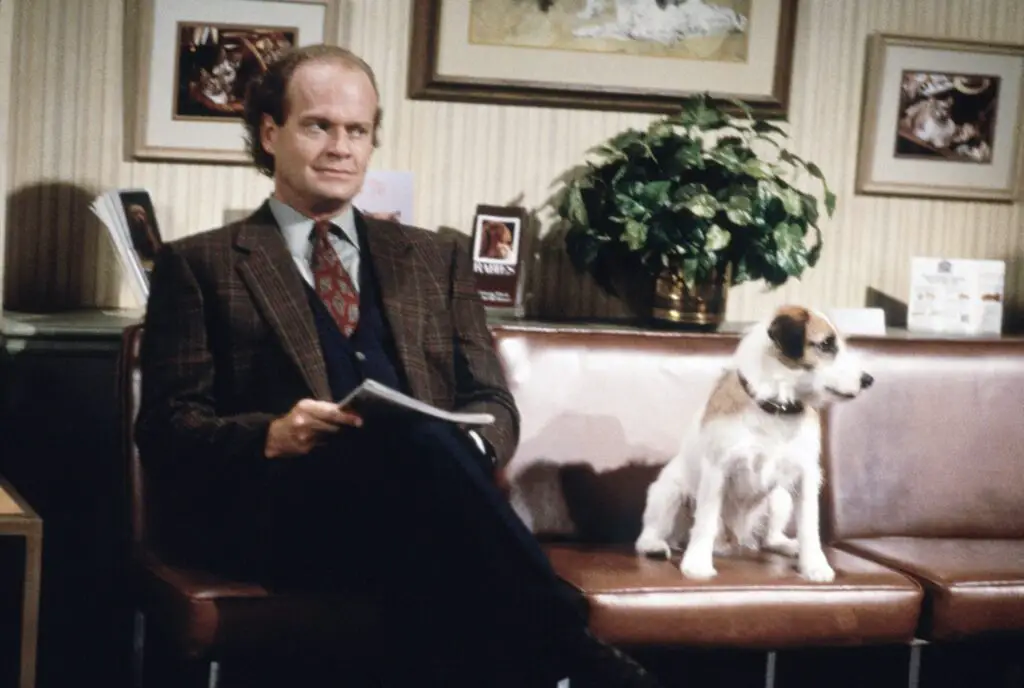
In this Frasier episode, the Crane brothers become convinced they’re descended from Russian royalty. While the episode played it for laughs, it strangely foreshadowed the later global fascination with ancestry testing. Years later, companies like 23andMe and AncestryDNA would make that kind of exploration mainstream.
At the time, tracing your genetic roots was more of a hobby for historians than a household activity. But the episode tapped into something that people were clearly curious about: identity and heritage. It’s funny how Frasier treated it as an eccentric fad, only for it to become a billion-dollar industry. Leave it to the Crane brothers to be unintentionally trendy.
10. The Big Bang Theory – “The Cooper Extraction” (2013)
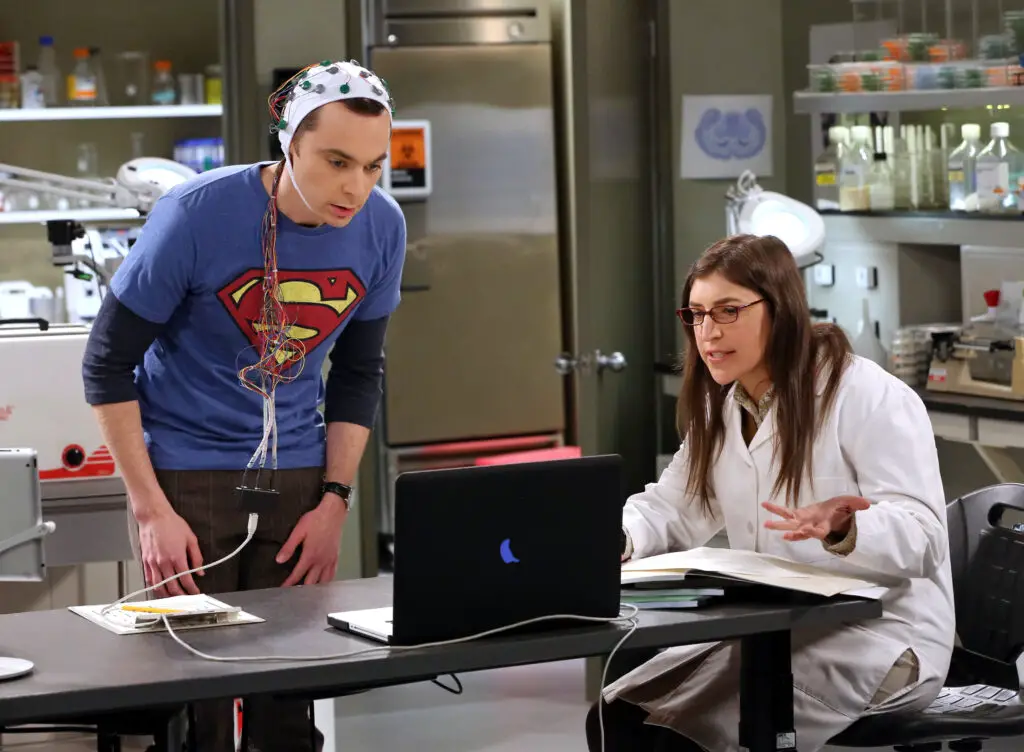
In this alternate reality episode, Sheldon imagines what life would’ve been like if he’d never met his friends. The group falls apart, social media replaces their in-person connection, and everyone seems lonely and detached. It ended up feeling like a chilling preview of how digital isolation affects relationships today.
The episode wasn’t predicting a pandemic or societal shift—it was exploring friendship. Yet its message about people retreating into screens feels even more relevant now. The Big Bang Theory was meant to celebrate geek culture, but it also hinted at how that culture would eventually dominate and isolate society. It’s one of those episodes that hits harder with hindsight.
11. Friends – “The One with the Videotape” (2001)

In this fan-favorite episode, Ross shows the group a video tape as evidence in a debate about who initiated his relationship with Rachel. The joke hinges on everyone gathering to watch it together. Years later, the concept of “viral videos” and recorded proof of everything would dominate pop culture.
While Friends wasn’t trying to predict social media, it captured how much video-sharing would shape relationships and storytelling. Watching people react to footage of themselves has become part of daily internet life. The episode feels like a primitive version of the culture of recording, posting, and replaying. It was a glimpse into how the camera would become central to everything.
12. Murphy Brown – “Uh-Oh (Part 2)” (1992)
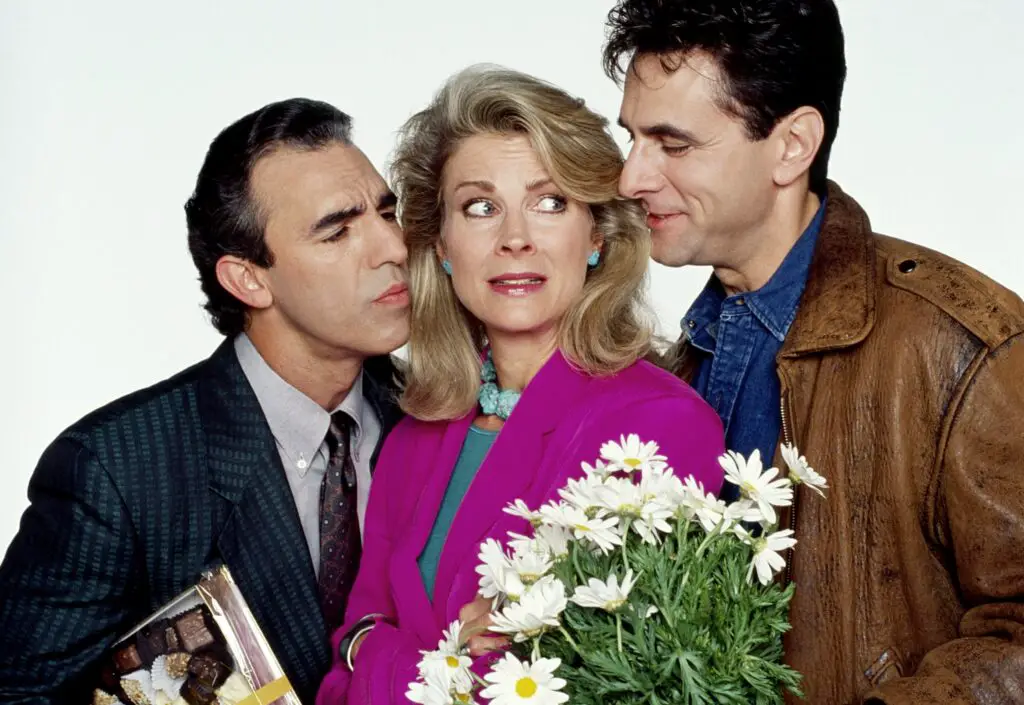
In 1992, Murphy Brown made headlines when its single-mother storyline drew criticism from then-Vice President Dan Quayle. The episode and the real-life reaction ended up predicting decades of debate about working mothers and “family values.” The media firestorm surrounding it felt like a preview of today’s culture wars.
The show handled the topic with humor and integrity, but the backlash revealed deeper tensions that still exist. Murphy Brown wasn’t just ahead of its time—it was living in the future before the rest of television caught up. It showed how sitcoms could spark national conversations that extend far beyond the screen. Looking back, it feels both progressive and prophetic.
13. The Jetsons – “Rosey the Robot” (1962)
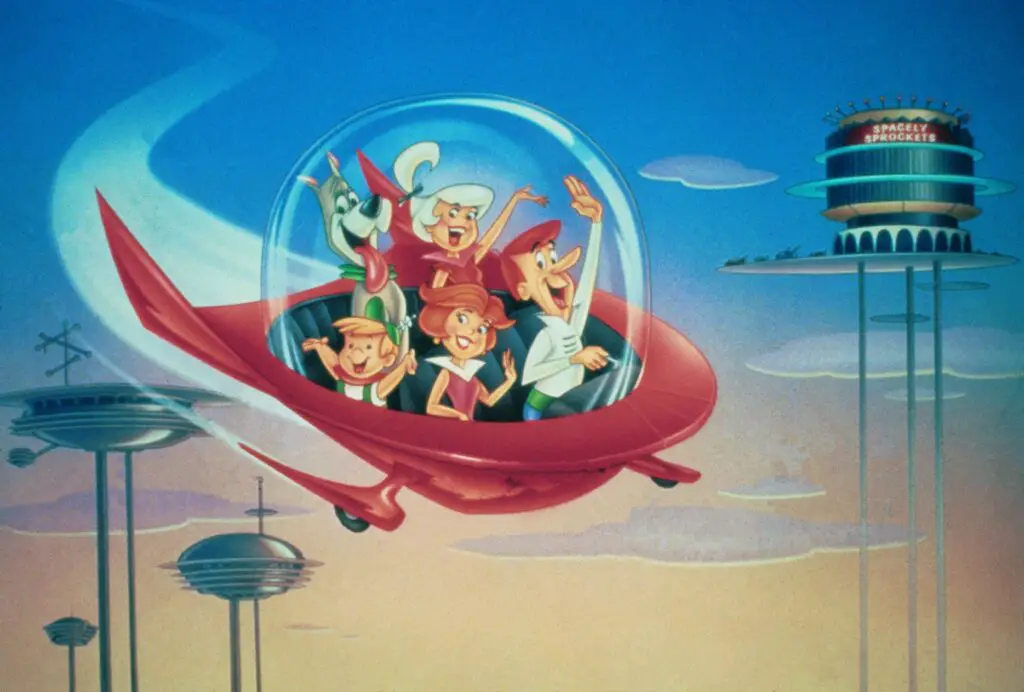
When The Jetsons introduced Rosey the Robot, few could’ve imagined how close we’d come to having our own mechanical helpers. In the ’60s, the idea of an AI housekeeper seemed like pure fantasy. But now, with Roombas cleaning floors and Alexa answering questions, it feels like Rosey’s descendants are already here.
What’s remarkable is how casual the show was about it all. The Jetson family’s reliance on automation predicted how modern households would embrace convenience tech without hesitation. The show wasn’t meant to be a forecast—it was just fun. Yet it ended up being one of the most accurate predictions in sitcom history.
14. The Simpsons – “Bart to the Future” (2000)
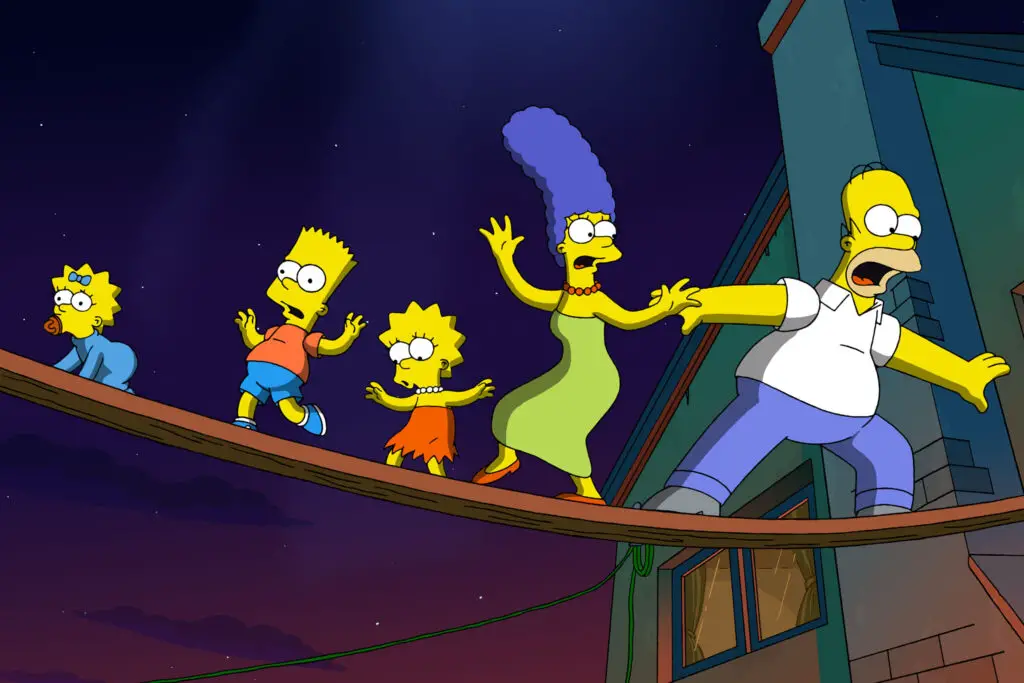
This episode became one of The Simpsons’ most famous “predictions” when it showed Lisa as the President of the United States succeeding “President Trump.” At the time, the idea of Donald Trump as president was meant as a ridiculous gag. But sixteen years later, that throwaway joke became reality, stunning even the writers who’d tossed it in as a quick punchline.
While the episode was meant to parody Trump’s fame and ego, it ended up being one of the show’s eeriest coincidences. Writer Dan Greaney later confirmed that Trump’s presidency was included as a warning about how absurd celebrity politics could become. It’s now used as the ultimate example of The Simpsons “predicting the future,” proving that sometimes satire cuts a little too close to home.
15. Friends – “The One with Ross’s Sandwich” (1998)
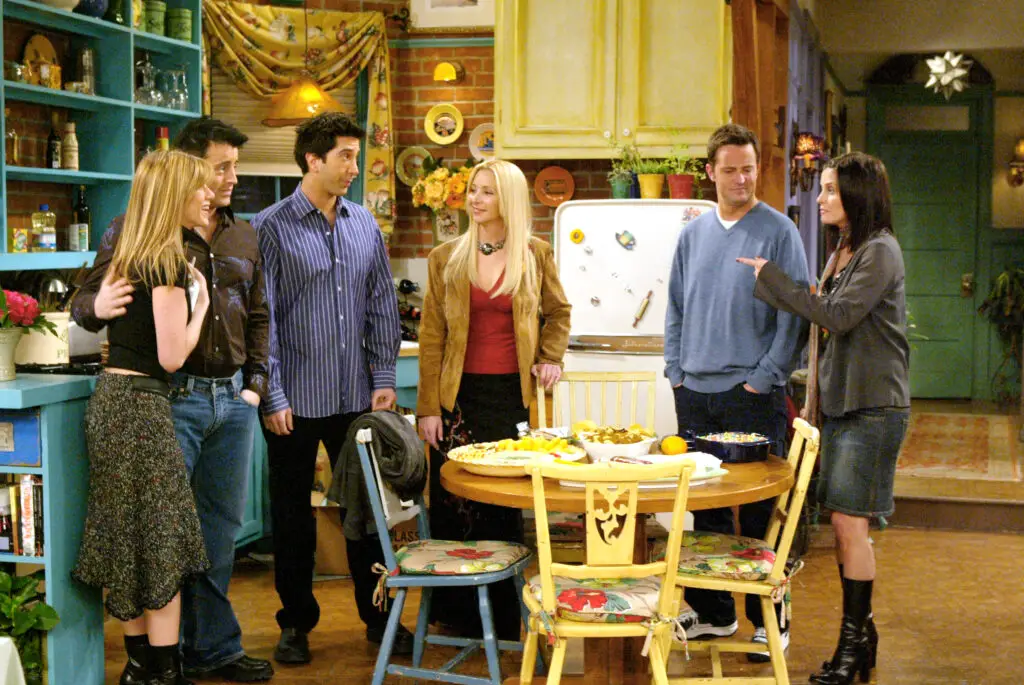
When Ross loses his temper after someone eats his Thanksgiving leftover sandwich, it’s played for laughs—but the episode includes a small detail that fans later noticed. Monica mentions her new digital camera, and the gang jokes about taking photos and sharing them instantly. That may sound ordinary now, but in 1998, instant photo sharing was years away.
The casual reference to portable cameras and quick photo exchanges almost perfectly mirrors the rise of camera phones and social media. At the time, those gadgets were barely emerging technology, yet Friends treated it like a new normal. Watching it now feels oddly modern, as if the group were just one step away from posting their “moist maker” selfies online. It’s a lighthearted glimpse of the Instagram era to come.
16. The Big Bang Theory – “The Cruciferous Vegetable Amplification” (2010)
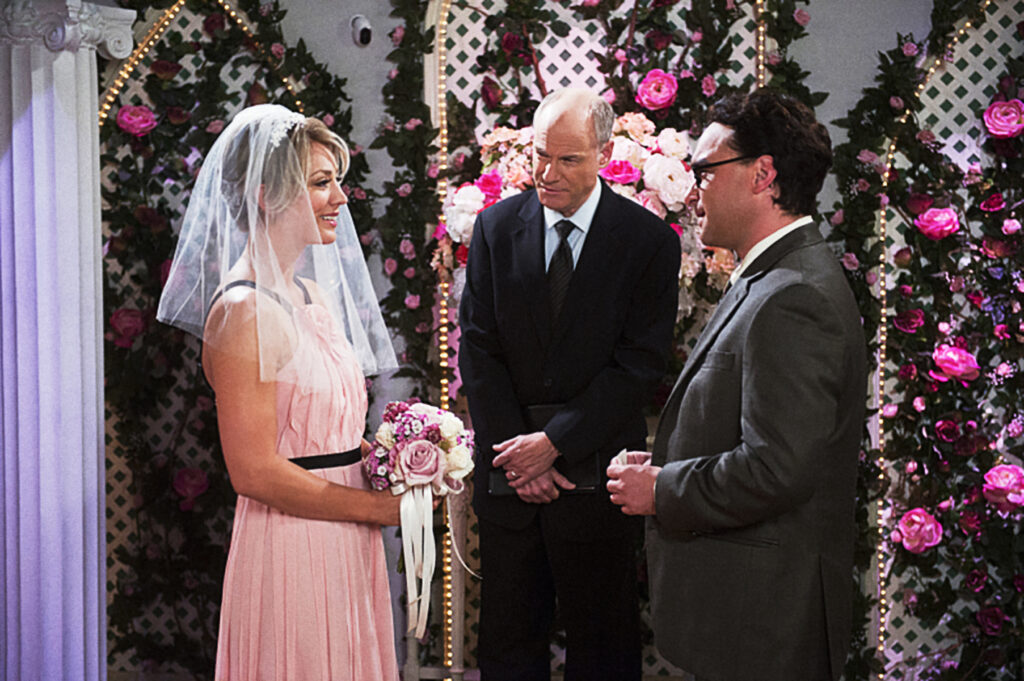
In this episode, Sheldon decides he needs a “mobile virtual presence device” to avoid physical harm and extend his lifespan. He creates a robot body that he controls from his apartment using a screen. While it seemed absurd in 2010, the idea almost exactly mirrors telepresence robots and AI-assisted communication devices that became real within a few years.
Tech companies soon began experimenting with robotic avatars for remote work, and even Facebook’s parent company Meta later used similar concepts in its virtual spaces. The Big Bang Theory was poking fun at Sheldon’s obsession with safety, but in the process, it visualized the way people would soon attend meetings or socialize virtually. What started as a gag about a lazy genius ended up being a genuine tech forecast.
17. Frasier – “Something Borrowed, Someone Blue” (2000)
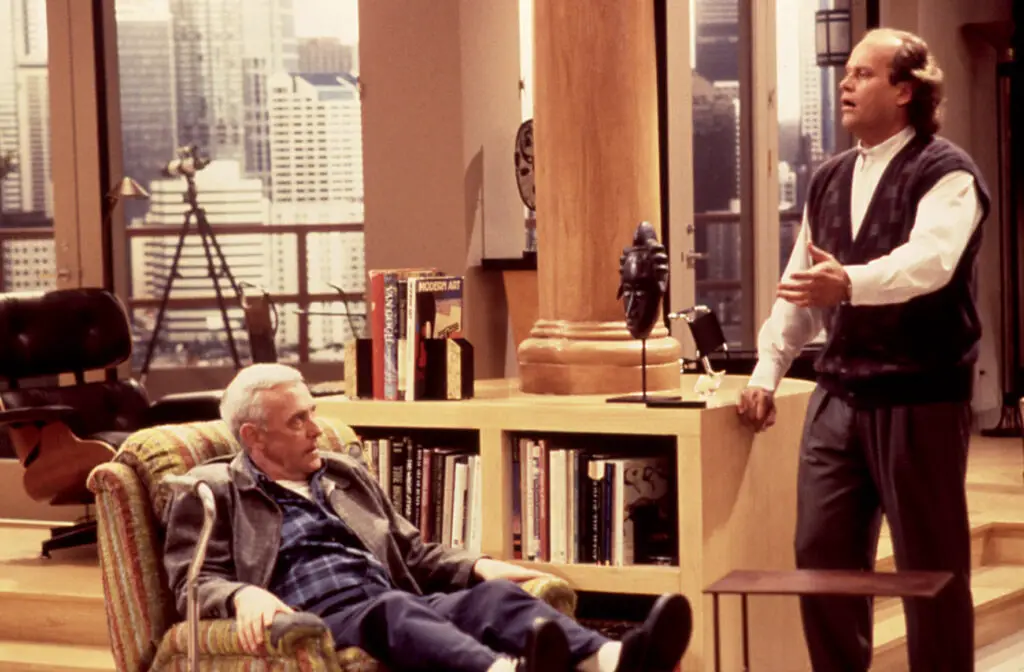
In this two-part finale to season seven, Daphne and Niles finally realize their love for each other—right before Daphne’s wedding to another man. The episode features a subplot where Roz helps Frasier with his new dating app-like service that matches users based on personality traits. Years later, online dating and matchmaking algorithms became standard, almost exactly as Frasier envisioned.
At the time, dating sites were in their infancy, and most people still met through friends or work. But Frasier’s writers nailed the psychology-driven, compatibility-based approach that services like eHarmony and Tinder would later perfect. The idea of science-backed romance was seen as futuristic in 2000, but it quickly became everyday reality. The show predicted the algorithms of modern love with its usual wit and charm.
18. The Nanny – “The Chatterbox” (1995)
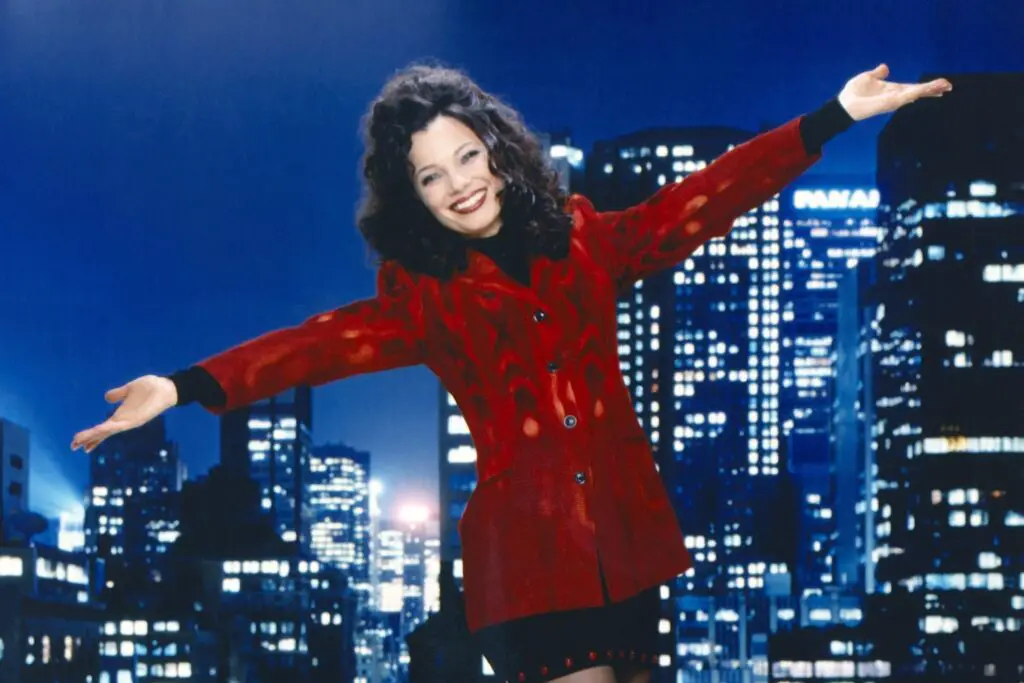
In this episode, Fran Fine helps launch a new beauty product by creating buzz through a tabloid and morning TV appearances. Her over-the-top PR tactics, including self-promotion and catching the attention of influencers, foreshadowed the entire social media influencer industry. Long before Instagram or TikTok, The Nanny captured the rise of image-driven self-branding.
At the time, Fran’s shameless self-promotion was seen as comedic vanity. But her character embodied what would later become the marketing norm—personal branding and viral publicity. Watching it now feels like a primer for the influencer era, where charisma and self-marketing are everything. The Nanny may not have predicted social media directly, but it nailed the culture that would grow from it.
